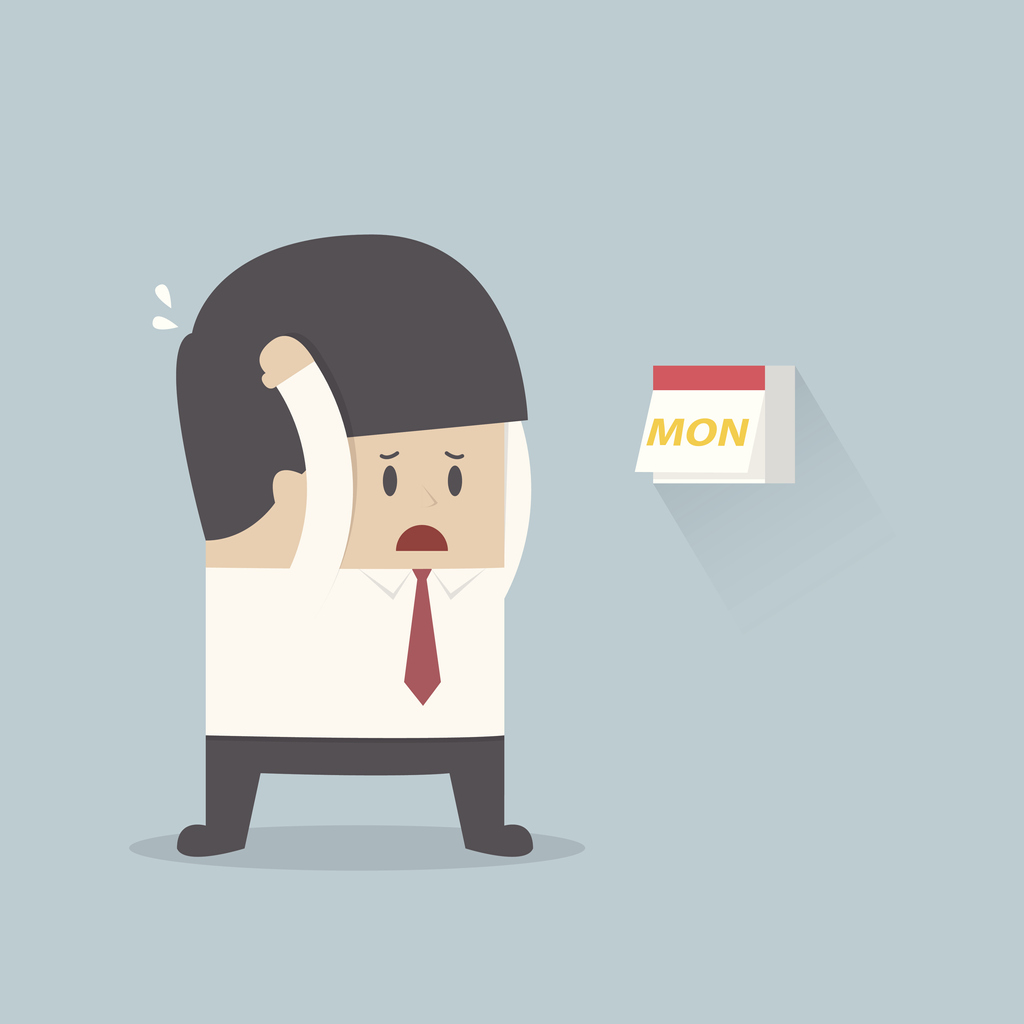6 Scientific Reasons Mondays Are the Worst
Have a case of the Mondays? Here’s why.
1. SLEEP PATTERNS
Our minds are absolute slaves to our body clocks. As we remember every year when the clocks “spring forward,” even an hour’s change can completely mess you up. But in a way, we do this to ourselves every single week. Since most people don’t get enough sleep during the week, they often try to make up for it on weekends. But sleeping in even an hour or two for just two days can confuse your body clock. According to scientists, that extra sleep just makes you more tired at the start of the week, because it can throw your body clock off by up to 45 minutes. This makes it even harder to get up on a Monday morning, even though you would think you would be well rested since you “caught up” on sleep over the weekend.
2. SOCIALIZING
One strange reason we might feel down Monday mornings is thanks to something that dates back to early days of mankind. Humans are social animals, and to feel happy we need to feel comfortable of our place in a “tribe,” so to speak. Even after just two days away, according to scientists, we need to make sure our place in our work environment is secure. Gossiping with your co-workers is an important part of gearing up for the work week, and if you don’t do this, you might feel out of sorts.

3. SUDDEN CHANGE
Scientists have found that when you ask people to record their emotions at regular intervals, it turns out that Mondays are no more stressful or depressing than Tuesday, Wednesday, or Thursday. Fridays only come out ahead because people are anticipating the weekend. Other than that, all work days are equally terrible. But if you ask people to remember which day was worst, they will always say Monday. This comes down to the fact that there is a larger emotional shift from Sunday (a happy weekend day) to Monday (a work day) than there is between two work days. So no matter what, Monday will always seem like it was the worst day of your week.
4. YOU FEEL WORSE ABOUT YOURSELF
Your average weekend might involve eating, drinking, or smoking more than normal. And all of these things take a toll on you physically, which may be why one study found that American women of all ages and locations feel least attractive on Mondays.
People also see Mondays as the best day to change something about themselves. You are more likely to consider (or actually start) a diet on the first day of the week, as well as quit smoking. While these are positive changes, they aren’t fun to actually do, and they come from a place of feeling bad about yourself and your health, which contributes to that blah Monday feeling.
5. YOU ARE LESS HEALTHY
But you don’t just feel less healthy on a Monday, you actually are less healthy. Scientists have found that even people who generally maintain their weight weigh the most at the beginning of the week. Mondays are also the most common day for people to suffer heart attacks and strokes. Even if you don’t end up in the hospital, your blood pressure is higher on Monday as is your chance of getting sick in general.
6. YOU DON’T LIKE YOUR JOB
According to a massive Gallup poll, 70 percent of people hate or, at best, are “completely disengaged” from their job. This contributes to what psychiatrists and career coaches call the “Monday Blues.” Feelings of depression and anxiety can start on Sunday night, leading to an unproductive Monday. That might be why 37 percent of job applications are submitted on Tuesdays, more than any other day; you have another terrible Monday at a job you hate, and you’re ready to get out of there.
source: mentalfloss
to have a case of the Mondays – non sopportare i lunedí
slave – schiavo
to mess somebody up – scombussolare
to make up for something – compensare
to feel down – non sentirsi bene, sentirsi male
tribe – tribú
to gossip – spettegolare
to gear up – prepararsi per
to feel out of sorts – sentirsi male/strano
at regular intervals – ad intervalli regolari
to take a toll on somebody – prendere un pedaggio su
blah – banale, noioso
to end up – ritrovarsi, finire/arrivare
blood pressure – pressione sanguigna
disengaged – disinteressato
blues – malumore
anxiety – ansia







